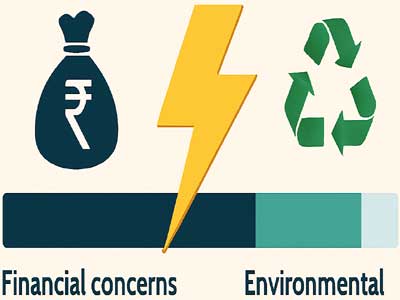Environmental concerns do not affect people’s electricity usage as much as financial concerns, reveals new research from the University of Vaasa.
The research, from Nayeem Rahman, concludes that, with consumer electricity usage levels remaining relatively unchanged for decades, despite the growing concerns around climate change, only to then drop significantly as Russia’s invasion of Ukraine has contributed to a sharp rise in energy prices, consumers are driven by financial constraint more than ethical values.
He suggests, therefore, that appealing to people’s conscience to incentives better consumer choices would be ineffective. “A financial incentive will always be most effective. The most common incentive is a lower electricity bill. But it can also mean getting paid for the surplus energy from your rooftop solar panels, or being compensated for exporting electricity from your electric car's battery back to the grid during a period of high demand on the grid,” Rahman says.
Rahman’s research, which investigates how the behaviour of Finnish households and businesses, aided by digital advancements, is transforming Finland’s electricity market, offers three significant findings.
Alongside rising energy costs, digitisation, and the availability of mobile applications and smart devices, which offer real-time information on usage and cost, have also contributed to consumers becoming more conscious in their usage.
“The purpose behind these applications and smart devices is to make participation as easy as possible by requiring minimal human touch points. And the result is a financial win-win. Households cut their costs while suppliers reduce the need to purchase high-priced spot electricity,” Rahman adds.
Research offers a timely insight into the relationship between consumer choices and the energy market’s response. It also spotlights the reality that, while consumers may appear to use electricity more consciously and flexibly, this is often driven by financial incentive as opposed to ethical concerns.
















Related Items
Reclaiming forgotten financial assets is now easy…
‘Damage First, Pay Later’ model qualifies as environmental justice?
Growth and environmental challenges for Indian industries